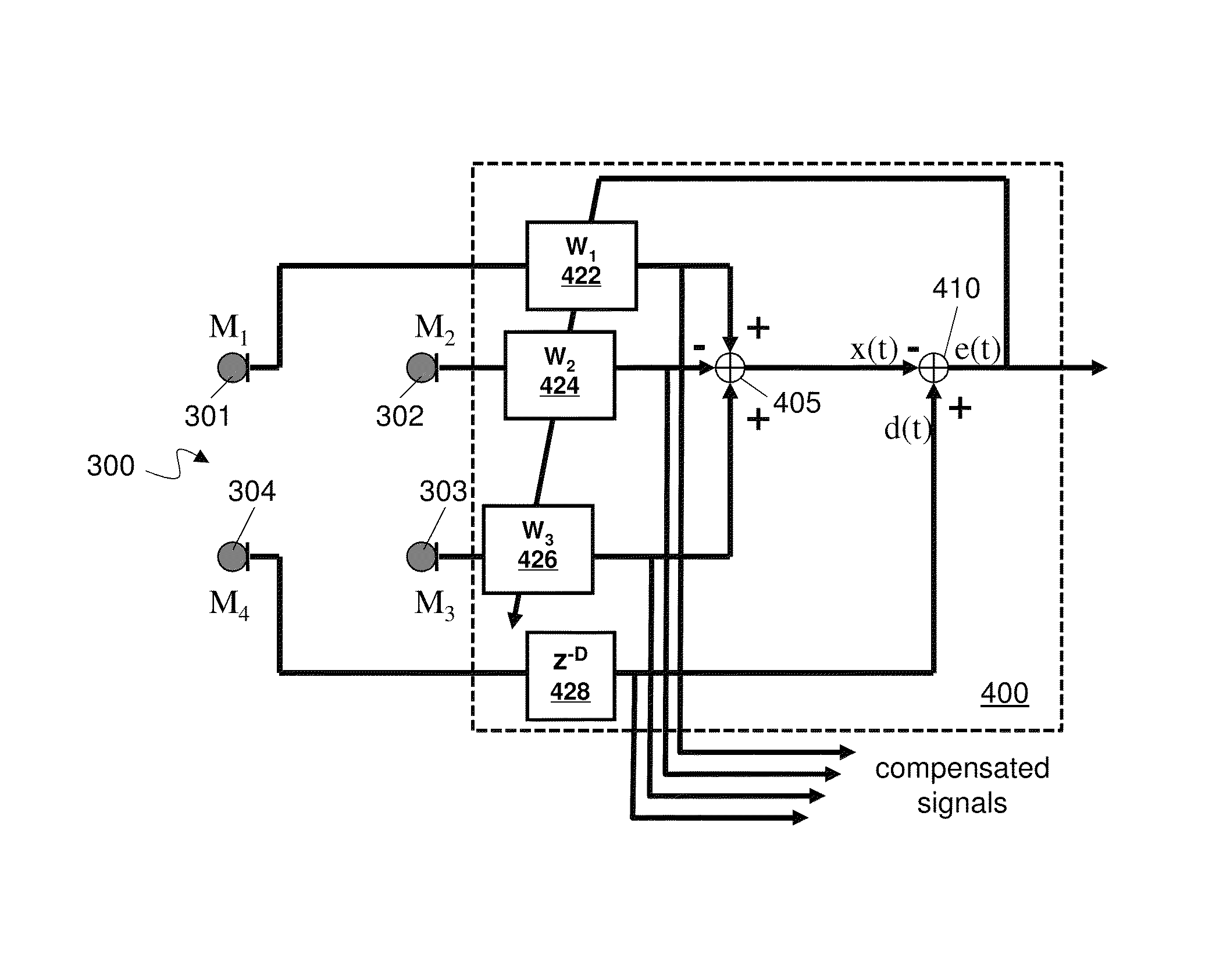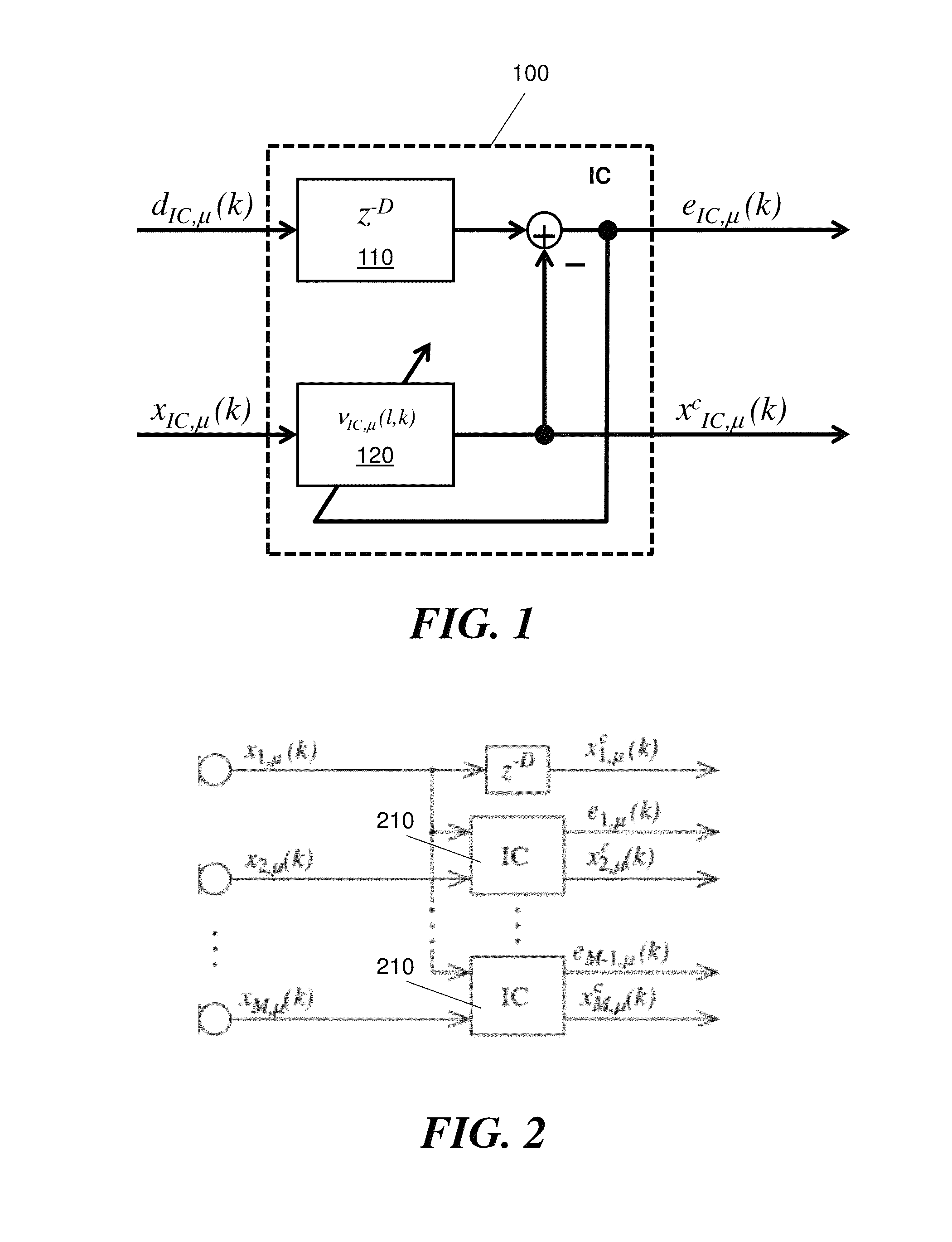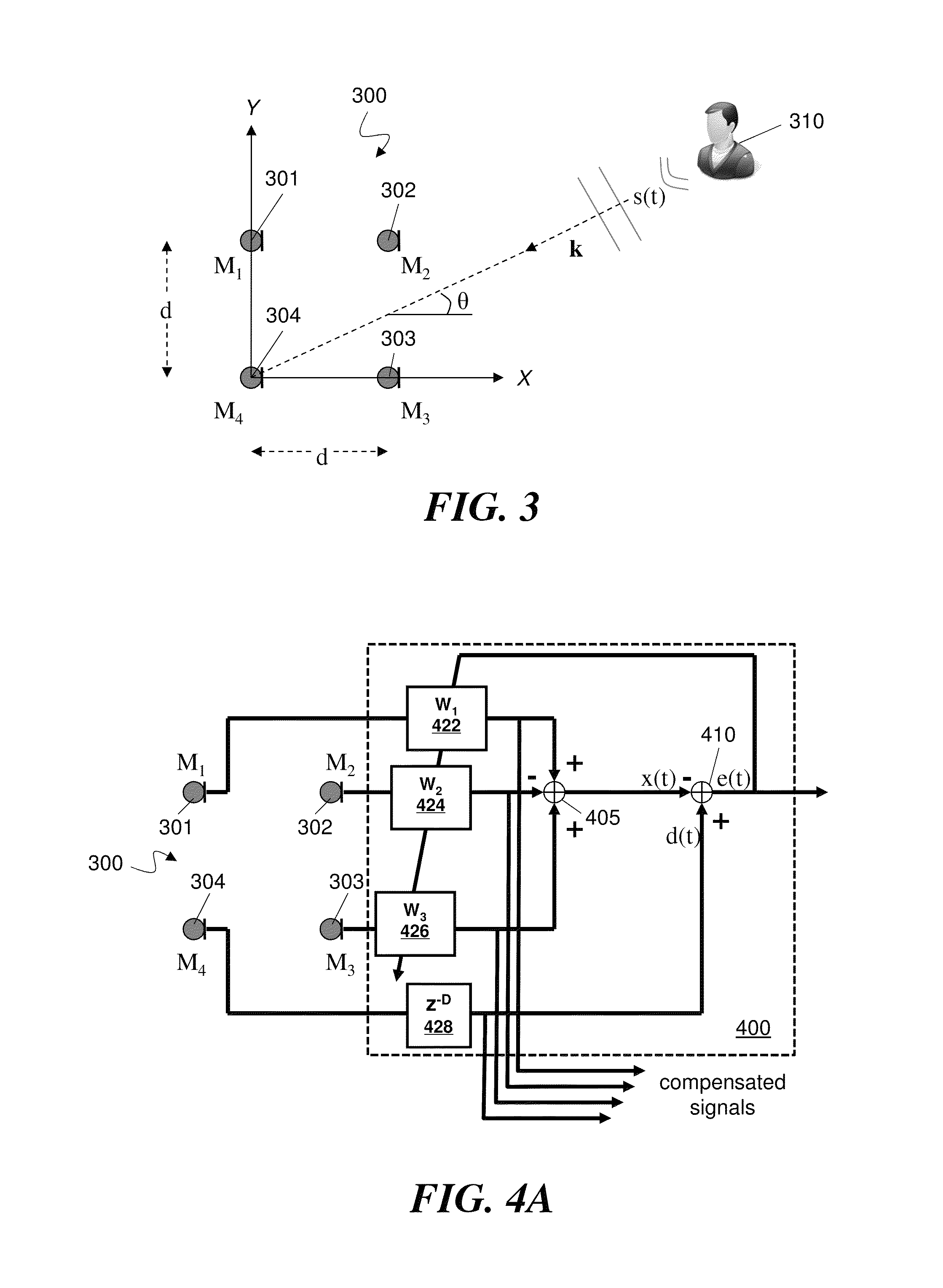Adaptive self-calibration of small microphone array by soundfield approximation and frequency domain magnitude equalization
a technology of soundfield approximation and frequency domain, applied in the direction of transducer casings/cabinets/supports, transducer circuits, electrical transducers, etc., can solve the problems of time-consuming and laborious manual sorting and grouping of similar responses and the inability to guarantee the matched response of microphones in a set over the long term
- Summary
- Abstract
- Description
- Claims
- Application Information
AI Technical Summary
Benefits of technology
Problems solved by technology
Method used
Image
Examples
Embodiment Construction
[0027]By way of introduction, embodiments of the invention described below are applicable in the field of directional sound acquisition wherein small microphone arrays are used for signal acquisition. Small microphone arrays maybe used for directional signal acquisition and amplification in hearing aids, or they may be used as a directional microphone system to acquire first order B-format signals, which encode a soundfield having directional sounds into a data recording for subsequent surround sound playback. Such microphone systems may also be used for B-format or surround sound recording with small hand-held portable electronic devices, for example, mobile phones, PDAs, camcorders, audio devices, portable computers, computing tablets and pads, etc. For example, a small microphone array may be incorporated into any of these devices and provide easily portable surround-sound recording capability at minimal cost.
[0028]When small microphone arrays are used to record soundfields inclu...
PUM
 Login to View More
Login to View More Abstract
Description
Claims
Application Information
 Login to View More
Login to View More - Generate Ideas
- Intellectual Property
- Life Sciences
- Materials
- Tech Scout
- Unparalleled Data Quality
- Higher Quality Content
- 60% Fewer Hallucinations
Browse by: Latest US Patents, China's latest patents, Technical Efficacy Thesaurus, Application Domain, Technology Topic, Popular Technical Reports.
© 2025 PatSnap. All rights reserved.Legal|Privacy policy|Modern Slavery Act Transparency Statement|Sitemap|About US| Contact US: help@patsnap.com



